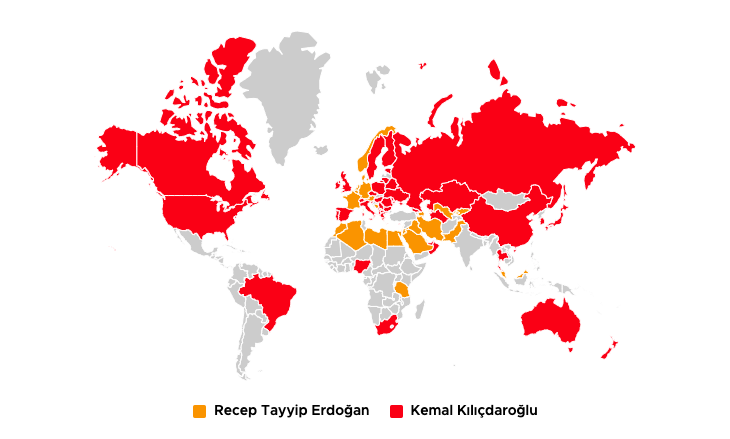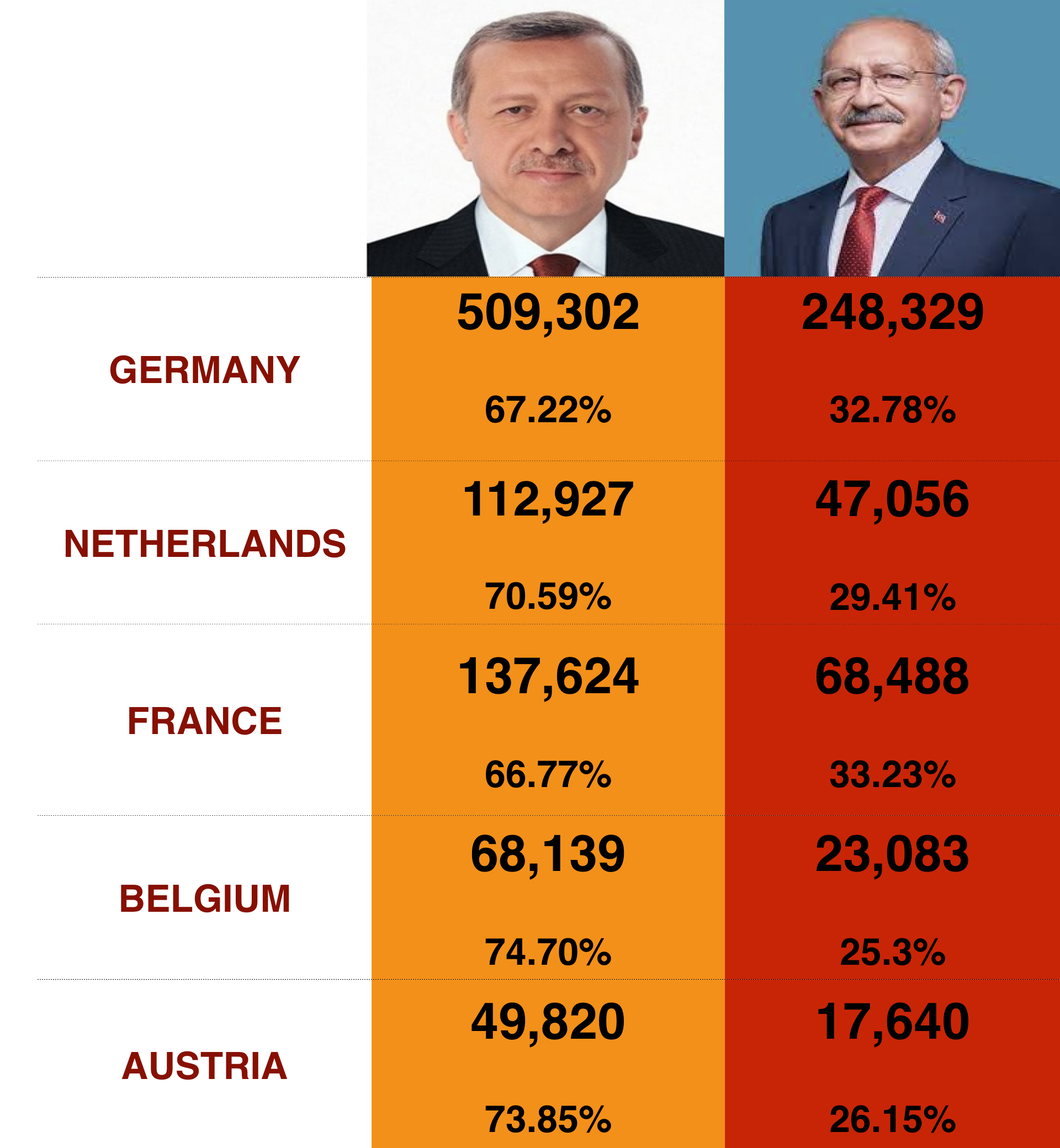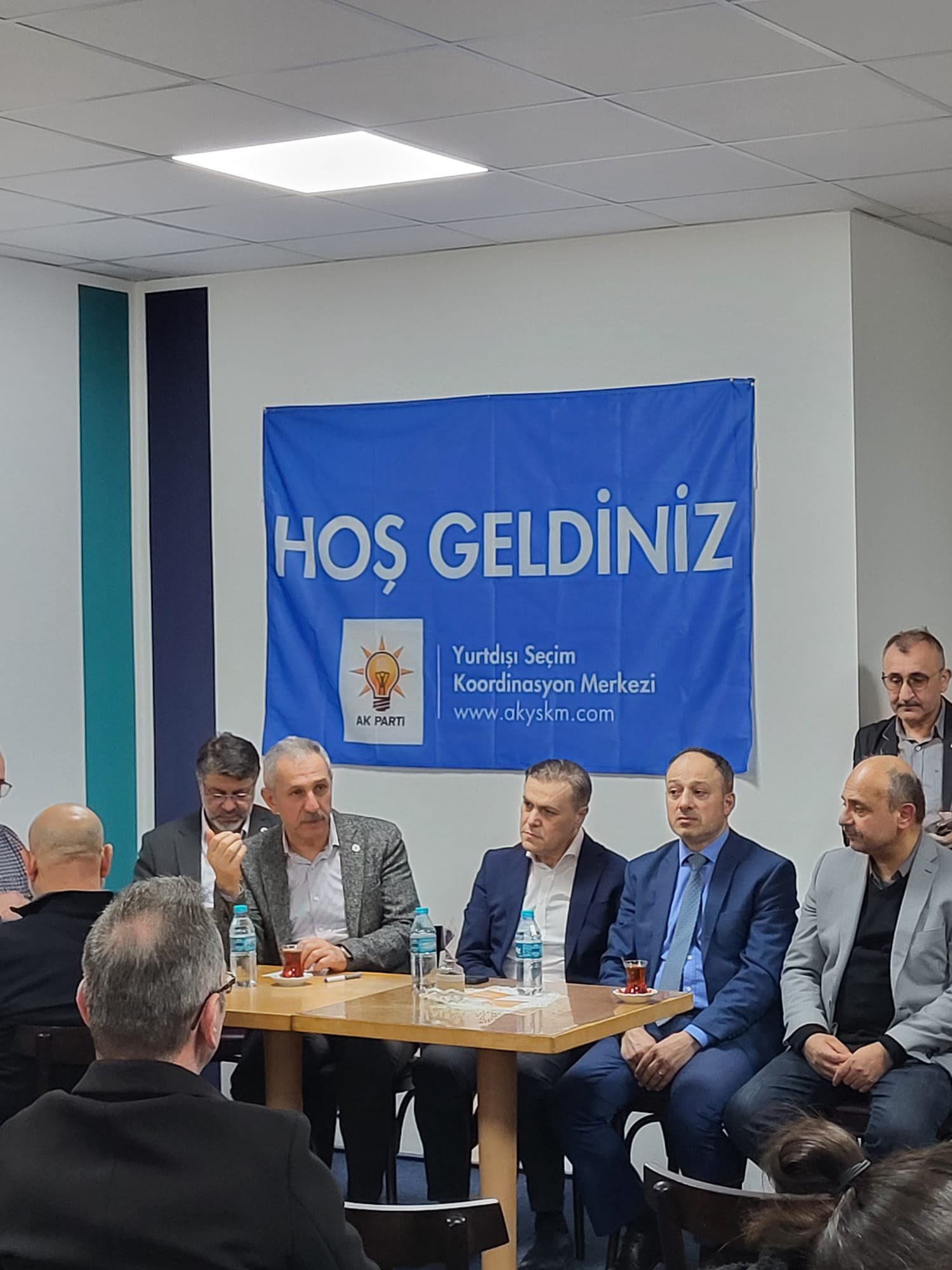Levent Kenez/Stockholm
The president of the Union of International Democrats (UID), an organization that functions as an interest group abroad on behalf of the government of Turkish President Recep Tayyip Erdogan, thanked the members of the association for their efforts in the May elections in Turkey and said they are proud to be Erdogan’s soldiers in Europe.
Erdogan’s Justice and Development Party (AKP) carries out its activities in 33 countries through the UID, often described as the long arm of President Erdogan, particularly in Europe, for mobilizing the Turkish and Muslim diasporas for the goals of political Islamists back in Turkey.
Accompanied by executives from various countries, UID President Köksal Kuş addressed members who had traveled to Ankara to follow the presidential election after it became clear that Erdogan had emerged victorious.
Video of Kuş’s address to UID members in Ankara:
“You exerted a great deal of effort. It’s difficult to be a member of the AKP in Europe. It’s really hard to follow the president’s lead. Each of you is a hero, and you have said, proudly, that we are the soldiers of Recep Tayyip Erdogan,” Kuş told the UID group preparing to march to the presidential palace for celebrations.
Indicating that UID members had made great efforts to secure the AKP’s large number of votes, Kuş said they had made history.
Erdogan won the overwhelming majority of votes in Germany, France, the Netherlands, Belgium and Austria, countries where a large number of Turks live.
An important reason why Erdogan received a large proportion of the vote in these countries is that the Turks living there came from the conservative and nationalist regions of Turkey where Erdogan is very much favored. These Turks, who in general are not successfully integrated in those countries, mostly live in ghettos with people coming from the same cities. Rising Islamophobia and racism are also factors in these voters’ preference for Erdogan.

If the two main candidates had an equal number of votes before before the addition of votes cast abroad, Erdogan would have won the election with their help.
According to Turkey’s Supreme Election Board protocol, the votes from abroad are added after the total home votes are counted.
Erdogan won 59.57 percent of the 1,920,879 votes cast abroad, getting 367,465 more votes than his rival, main opposition leader Kemal Kılıçdaroğlu.
Erdogan also received 65 percent of the 750,000 votes cast in Germany, which has the largest number of expatriate voters.
Similarly, in the 2018 presidential election, Erdogan was well ahead of his rivals by garnering 59.41 percent of these votes.

However, this success notwithstanding, the party that exerted the most effort to win the votes of the European diaspora in the May elections was again the ruling party.
No doubt, UID took full advantage of government resources and funds during the election period. Turkish diplomatic missions organized meetings for ruling party representatives to bring them together with Turkish citizens ahead of the elections. Party gatherings are deliberately presented by the visiting delegation as if they are public meetings with Turkish expatriates in the host country.
A Nordic Monitor investigation found earlier that Kuş, who was groomed as a far-right nationalist in his youth in Germany, runs multiple businesses in Turkey thanks to his connections to radical Islamist politicians in the country.
Although Kuş came from an ultranationalist background, he apparently saw opportunities in involvement with President Erdogan and his ruling AKP. He filed an application to run for election on the AKP ticket in 2015 and wanted to fill the spot assigned for the European constituency in national elections. He was unsuccessful in his bid.
According to a review of trade registry filings, Kuş has expanded his business dealings in Turkey. He worked closely with Erdogan confidant Metin Külünk, who was investigated for his links to armed and radical Islamist groups in Turkey and helped establish the UID in Europe.

Listing a number of his relatives as partners, caretakers and shareholders in his firms, Kuş has managed his business interests as a Turkish national, never mentioning his ties to Germany in his filings. Once he had cultivated enough political capital with Turkish government officials, he ventured into the energy sector and secured a license from a Turkish regulatory body although he and his firms had no experience in energy production.
Kuş currently operates under the authority of AKP Deputy Chairman Efkan Ala, a former interior minister who runs overseas operations for the ruling party. Ala supervised the UID election in January 2021 when Kuş was elected its president.
Erdogan frequently meets with UID delegations and gives them various instructions. He last year instructed UID members to be more aggressive and active, telling them, “Don’t defend. Attack, explain our cause!” promising that Turkish state institutions would provide them with increased assistance.
He also urged his supporters to work hard to secure important posts in the governments of their host countries, pledging them the support of Turkish government agencies during a workshop with UID representatives in 2019.












